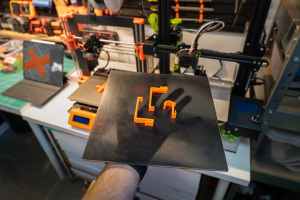Reflections from a mother
I have already mentioned here that I am the mother of a teenage daughter who also works in a telecommunications company, which makes me very aware of the possibilities of technology, but also the challenges it poses for the emotional development of young people. For this reason, I believe that keeping myself informed and continuously educating myself is my best asset in supporting my daughter at a time when we are surrounded by screens from breakfast to bedtime, when technology can be a great tool for learning and connecting, but also a source of insecurity for her self-esteem.
On 28 March, the Espacio Madresfera at the Telefónica Foundation hosted an event for families that addressed crucial issues regarding the impact of technology on the self-esteem and emotional well-being of young people.
Telefónica, through its Foundation, collaborates with Madresfera through the Espacio Madresfera, a series of events, podcasts and workshops focused on promoting responsible parenting in a digital environment.
During the meeting, which focused on the importance of caring for self-esteem in a world flooded with technology and screens, participants discussed how this affects young people’s personal development and influences their daily lives, approaching the debate from two different but complementary perspectives: psychology and education.
Iris Pérez Bonaventura, a clinical psychologist specialising in emotional and behavioural problems in children, adolescents and young people, focused on the idea that self-esteem is based on knowing oneself and accepting oneself as one is. This becomes even more important in the digital age, where we are surrounded by constant comparisons and the insecurities of adolescence seem to intensify.
Social media is a space where our children have direct access to lives that seem perfect. Constant comparisons and pressure to achieve unrealistic standards of beauty and success can damage their self-esteem, leading them to question their own worth and abilities. In their virtual world, the line between inspiration and negative comparison becomes blurred. What happens when they start measuring their worth based on the number of ‘likes’ they receive? How can we help them remember that their identity is worth so much more than what they show on a screen?
Rafael Dávila, social educator and educational counsellor, emphasised that social health (our relationship with our environment, with others and with ourselves) is just as important as mental health, and that self-esteem plays a crucial role in both. Given the challenges posed by the digital environment in a hyperconnected and hyperdemanding world, he stressed the importance of parents and educators accompanying young people in their interaction with the digital world. This includes providing them with tools to navigate this environment in a healthy way without compromising their self-esteem, supporting their emotional growth and talent development, and helping them build solid self-esteem even in digital contexts. To do this, they first need to get to know themselves and their powers (in true X-Men style), their differences and abilities, finding that safe place where they can develop and be themselves.
At the end of the session, I asked myself, ‘What can I do to help improve my teenage daughter’s self-esteem?’ Because although the theory was very clear to me (encourage self-knowledge and self-acceptance, validate her emotions and experiences, teach her the importance of perseverance and effort), putting it into practice does not seem easy. As a mother, I am committed to being there for her, validating her (‘you are capable,’ ‘you will succeed,’ ‘you can do it’ with realism), offering her a compass to help her distinguish between the superficial and the valuable. Fortunately, self-esteem is dynamic and can be worked on and strengthened with the right support.
I have always trusted technology as a tool for creativity and learning. Technology can be a great ally, but it should never replace what is most important: her emotional well-being.








